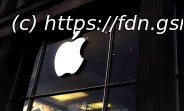The best polls put the far-right Alternative for Germany at less than 15 percent of the vote one week before European elections. But with…
The best polls put the far-right Alternative for Germany at less than 15 percent of the vote one week before European elections. But with their relentless Facebook messages, tweets and other social media posts, they’re dominating the other parties online.
Like other right-wing parties in Europe, the party known as AfD is taking a page out of U. S. President Donald Trump’s playbook, skirting a traditional media campaign to focus on a provocative social media effort that has prompted more shares and chatter than anyone else. The key question, though, is whether it can turn the internet buzz into actual votes.
„As the first Facebook party of Germany, the AfD knew from the very beginning how to activate and mobilize their fans,“ digital expert Martin Fuchs told The Associated Press. „Thousands of fans make sure the party’s content is spread widely and creates a buzz and attention — at least within the AfD bubble.“
Trump’s nontraditional strategy has proven a model for many populist parties in Europe. Italy’s Matteo Salvini streams videos of his appearances on Facebook and debates issues on Twitter; Marine Le Pen in France has 2.2 million Twitter followers and her party created a unit devoted to social media campaigning for France’s 2017 presidential election, in which she made it to the runoff.
The AfD wouldn’t discuss its strategy in detail, but the most successful posts seem to take a kernel of real news and then exaggerate it to raise online indignance and promote the conservative nationalist platform.
On Twitter, its members are lashing out against the traditional mainstream parties by falsely claiming Chancellor Angela Merkel’s Christian Democrats want to ban YouTube. On Facebook, they warn — also inaccurately — that Merkel’s government coalition partner, the Social Democrats, will expropriate private homes.
And on all social media platforms, they stoke fears of migrants and Islam.
Earlier this month they capitalized on a report in the conservative tabloid press that Mohammed had become the most popular baby name in Berlin — true if you count middle names, but otherwise not.






